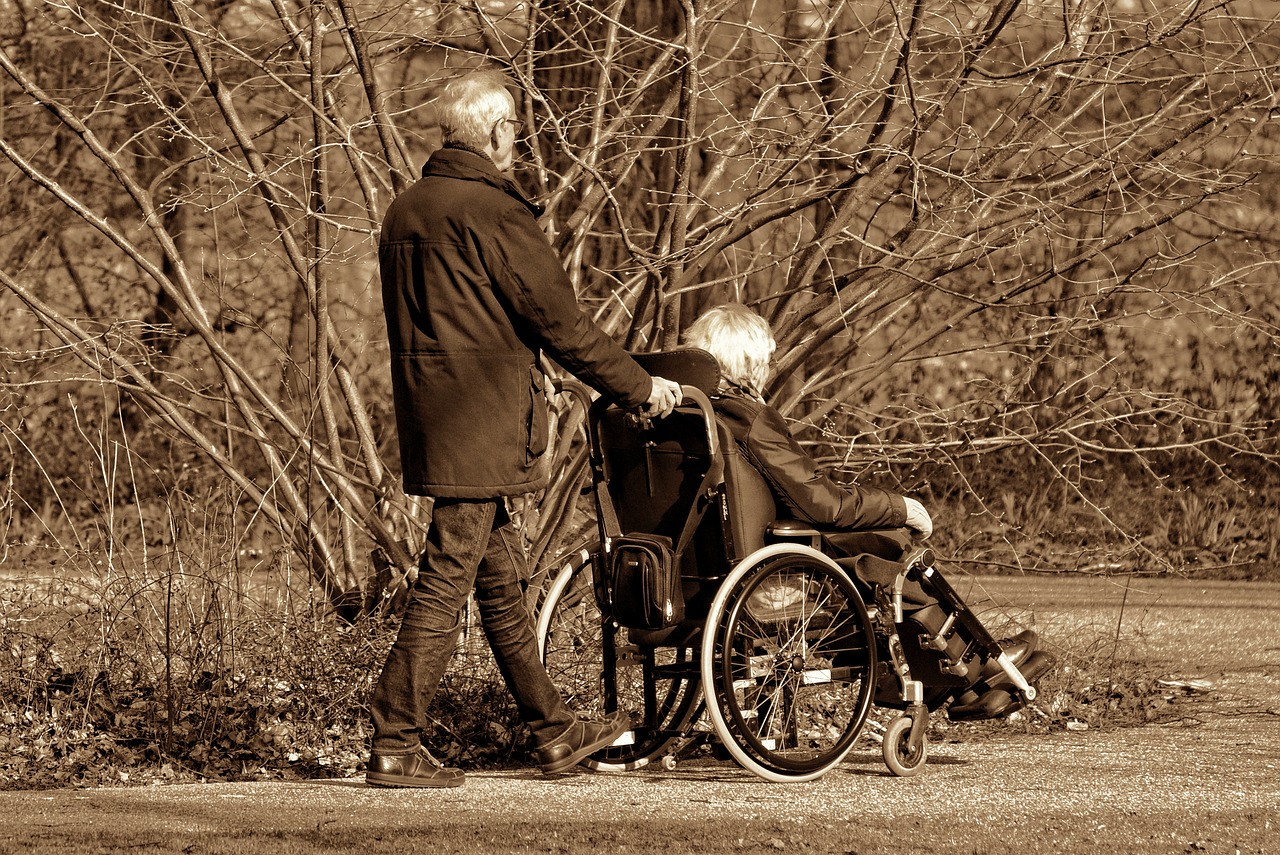End-Stage Parkinson’s: What to Expect

Parkinson’s disease is a progressive neurodegenerative disorder that causes dopamine levels to drop. When most people think about the symptoms of Parkinson’s disease, they picture tremors, muscle stiffness, slow movement, and loss of balance. These symptoms are present in the early stages of Parkinson’s disease.
Parkinson’s disease affects each individual differently. Some people are diagnosed with Parkinson’s disease early in life and remain in the early stages for many years. Others will skip stages or rapidly progress to the final stages of Parkinson’s disease.
What is End-stage Parkinson’s Disease?
Regardless of how long it takes to get there, when patients reach stage four of Parkinson’s disease, their symptoms become debilitating. Patients with stage four Parkinson’s disease have visible bradykinesia and rigidity. In most cases, stage four patients need assistance to walk, stand, and move.
When patients reach stage five – the final stage of Parkinson’s disease – they will have severe posture issues in their back, neck, and hips. They will require a wheelchair and may be bedridden.
In end-stage of Parkinson’s disease, patients will also often experience non-motor symptoms. These can include incontinence, insomnia, and dementia. Some medications used to treat Parkinson’s disease can cause hallucinations. This is seen more frequently if the patient also has dementia.
End-stage Parkinson’s symptoms.
End-stage Parkinson’s disease is characterized by severe motor and non-motor symptoms that significantly impact a person’s quality of life. As the disease progresses, individuals may experience the following symptoms of end-stage Parkinson’s:
Motor symptoms.
These symptoms directly affect movement and physical abilities, often severely impairing daily function:
- Severe motor impairment: Loss of ability to walk, requiring a wheelchair or becoming bedridden due to extreme rigidity and postural instability.
- Muscle stiffness: Increased rigidity in muscles, leading to difficulty with movement and positioning.
- Tremors (if present): Though less pronounced in later stages, tremors may still occur.
- Speech and communication difficulties: Slurred speech, reduced vocal volume, and difficulty forming words.
- Swallowing issues (Dysphagia): Difficulty swallowing, leading to choking risks and malnutrition.
Non-motor symptoms.
These symptoms affect systems beyond motor control and significantly impact quality of life:
- Cognitive decline: Memory loss, confusion, and dementia, often accompanied by behavioral changes.
- Hallucinations and delusions: Perception of things that aren’t present, often caused by the disease or medications.
- Incontinence: Loss of bladder and bowel control, requiring caregiving measures.
- Chronic fatigue: Persistent exhaustion, even with minimal exertion.
- Insomnia: Difficulty sleeping, which can exacerbate fatigue and confusion.
- Pain: Chronic pain, which may be caused by muscle stiffness or nerve issues.
How to care for someone with end-stage Parkinson’s.
Caring for someone with end-stage Parkinson’s requires a compassionate, comprehensive approach that addresses both physical and emotional needs. Here are key caregiving strategies:
- Prioritize comfort: Work with healthcare professionals to manage pain, muscle stiffness, and other symptoms. Hospice or palliative care services can provide specialized support.
- Assist with mobility: Use wheelchairs, hospital beds, or other mobility aids to prevent falls and ensure the patient’s safety.
- Address nutritional needs: Help with eating and drinking to reduce the risk of choking. A speech therapist can provide recommendations for managing swallowing difficulties.
- Maintain hygiene: Assist with bathing, dressing, and toileting to ensure cleanliness and prevent infections or skin breakdown.
- Support communication: Be patient when communicating, using simple language and non-verbal cues to connect with your loved one.
- Provide emotional support: Patients may experience anxiety, depression, or frustration. Offer reassurance, and consider enlisting the help of counselors or support groups.
- Monitor medications: Work closely with healthcare providers to adjust medications as needed to balance symptom relief with side effects.
- Plan for rest and respite: Caregiving can be physically and emotionally taxing. Arrange for respite care to take breaks and maintain your own well-being.
Hospice Eligibility for Parkinson’s Disease
Due to the progressive nature of Parkinson’s disease, it can be challenging for families to know when their loved one is eligible for the support of hospice care. If a loved one has been diagnosed with six months or less to live or if they have experienced a decline in their ability to move, speak, or participate in the activities of daily living without caregiver assistance, it is time to speak with a hospice professional about next steps.
Some of the things that that determine hospice eligibility for Parkinson’s disease include:
- Difficulty breathing including dyspnea at rest or the need for supplemental oxygen at rest
- Rapid progression to wheelchair or bed bound
- Unintelligible speech
- Inability to perform Activities of Daily Living (ADLs) without assistance
- Inability to eat or drink sufficiently
- Complications including pneumonia, sepsis, pyelonephritis, decubitus ulcers
- Additional comorbidities
Hospice care is covered by Medicare, Medicaid, and most traditional insurance plans at no cost to the family. All medications, medical equipment, and medical supplies related to the patient’s terminal illness will be provided at no cost. In addition, Crossroads Hospice & Palliative Care will coordinate a plan of care with the patient’s physician and family to ensure all of their physical, emotional, and spiritual needs are met.
If an individual with end-stage Parkinson’s disease is not yet eligible for hospice care, they may benefit from Crossroads’ palliative care program which partners with the patient’s physician to provide home visits from a nurse practitioner and social worker. Palliative care is specialized medical care for people living with a serious illness. This type of care is focused on providing relief from the symptoms and stress of the illness. The goal is to improve quality of life for both the patient and the family. Palliative care visits can be especially helpful if the patient is no longer able to walk on their own, making visits to the doctor’s office more challenging. Palliative care requires a referral from either a patient’s primary care provider or from another specialist related to their condition. A patient’s insurance provider will determine if palliative care is a covered service and, if so, which provider is in-network.
Plan ahead.
It can be empowering for patients who have been diagnosed with Parkinson’s disease to make their end-of-life wishes known early in the disease progression by creating an advance directive and establishing a durable power of attorney to ensure their healthcare wishes are followed.
Hospice care can provide invaluable support to families as their loved one’s condition declines. To learn more about the care we offer to patients with Parkinson’s disease, please call 855-327-4677.
Frequently asked questions.
How long does the final stage of Parkinson's last?
The final stage of Parkinson’s disease varies widely depending on individual health, the progression of symptoms, and care quality. It can last from weeks to several months or even years. The progression is influenced by factors such as age, co-existing health conditions, and the ability to manage complications like infections or swallowing difficulties.
What causes a rapid decline in Parkinson's?
A rapid decline in Parkinson’s can result from a combination of factors such as infections, aspiration pneumonia, complications from immobility, or medication side effects.
What is the final cause of death for Parkinson's?
The final cause of death for most Parkinson’s patients is typically due to complications rather than the disease itself. Common causes include spiration pneumonia, infections, and falls.
How long can end-stage Parkinson’s last?
End-stage Parkinson’s can last anywhere from weeks to several years, depending on the patient’s overall health, care provided, and their response to complications. Patients who receive comprehensive care, including hospice services, may live longer while maintaining better comfort and dignity.
Do late-stage Parkinson's patients sleep a lot?
Yes, late-stage Parkinson’s patients often sleep excessively. This is due to a combination of factors, such as fatigue, cognitive decline, medication effects, and reduced physical activity.
If you believe your loved one could benefit from the physical, emotional and spiritual support of hospice, contact us via one of the private methods at the top of this page.
If you found this information helpful, please share it with your network and community.
Copyright © 2024 Crossroads Hospice & Palliative Care. All rights reserved.




